Wisconsin is the top state for ‘memory cafes.’ Can the model expand nationwide?
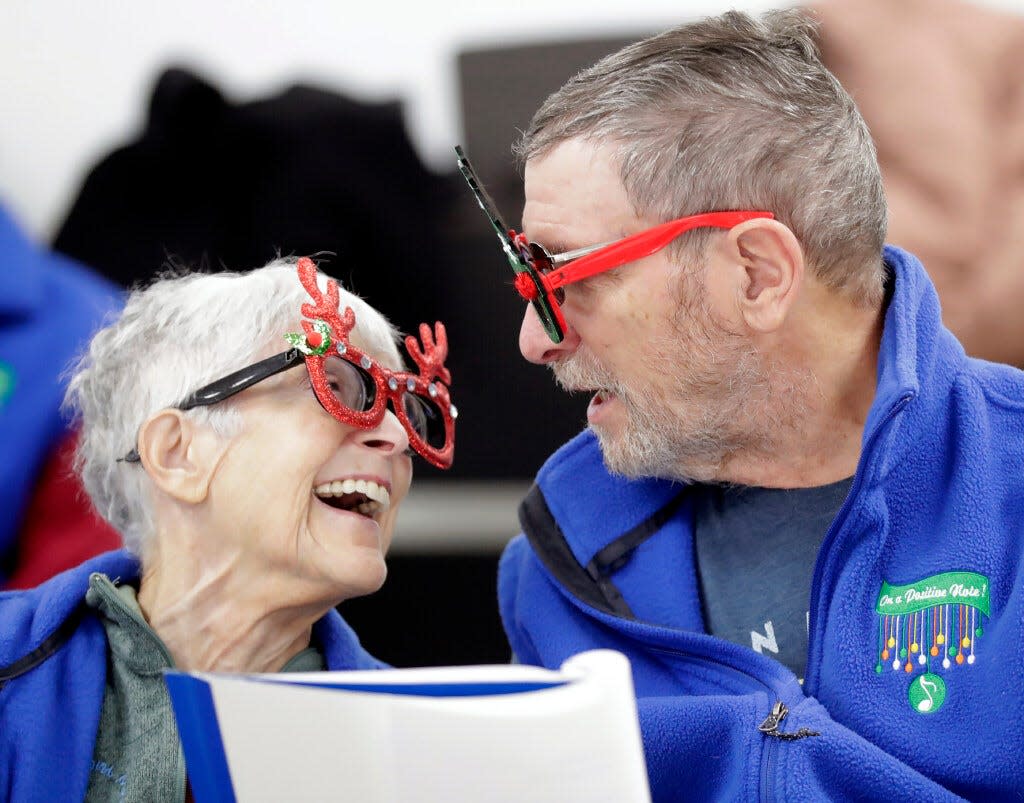
Shortly after returning to San Francisco from a vacation in Wisconsin, Tom Long asked his wife of 45 years: “Did you get our tickets yet?”
“Tickets for what?” Judy Long remembers replying.
“And he said, ‘Well, to go back.’ Because he thought we should be going back right away.”
Living in California had been isolating for the couple, who initially made the trip to Tom's home state of Wisconsin to visit a dementia-friendly summer camp near St. Germain and visit family. After that vacation, they decided to relocate back to Wisconsin — in large part for the support they found for his dementia, and her role as a caregiver.
Now the Longs are regulars at social events like memory cafes, a dementia-inclusive chorus, caregiver support groups, and other resources through the nonprofit Fox Valley Memory Project, known as FVMP.
Wisconsin is home to at least 130 memory cafes: free social events designed for people living with memory loss and their caregivers. That's the most of any U.S. state, according to one national tracker.
There are an estimated 120,000 people over age 65 with Alzheimer's, the most common form of dementia, in Wisconsin as of 2020. There are another 191,000 unpaid caregivers, according to the Alzheimer’s Association.
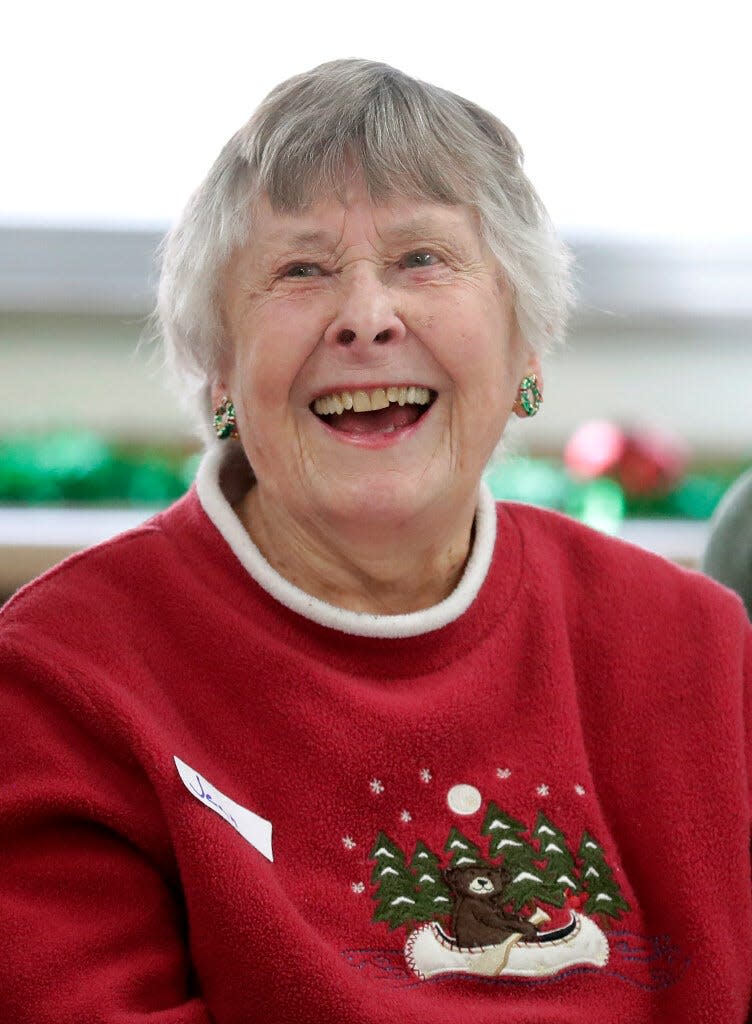
Those numbers will only continue growing as Wisconsin's population ages. For many advocates, the challenge ahead is getting more people living with dementia and their caregivers connected to social opportunities. Doing so promotes quality of life and reduces health risks associated with social isolation, among other benefits.
Susan McFadden, co-founder of the FVMP and a professor emerita of psychology at the University of Wisconsin-Oshkosh, wants to see those efforts expand beyond Wisconsin. Success requires not just local programs and volunteers, but for dementia-inclusive activities to become part of the health care system. Think: a doctor hands someone a prescription for a pill, and also to attend a memory cafe.
“We want to have the whole health care system understanding that the way you address social isolation and loneliness, which have all these health ramifications, is to provide these social opportunities. We need to connect A to B,” McFadden said in an interview.
Read more here: Where to find memory cafes, choirs, and other dementia-friendly events in Wisconsin
What are memory cafes?
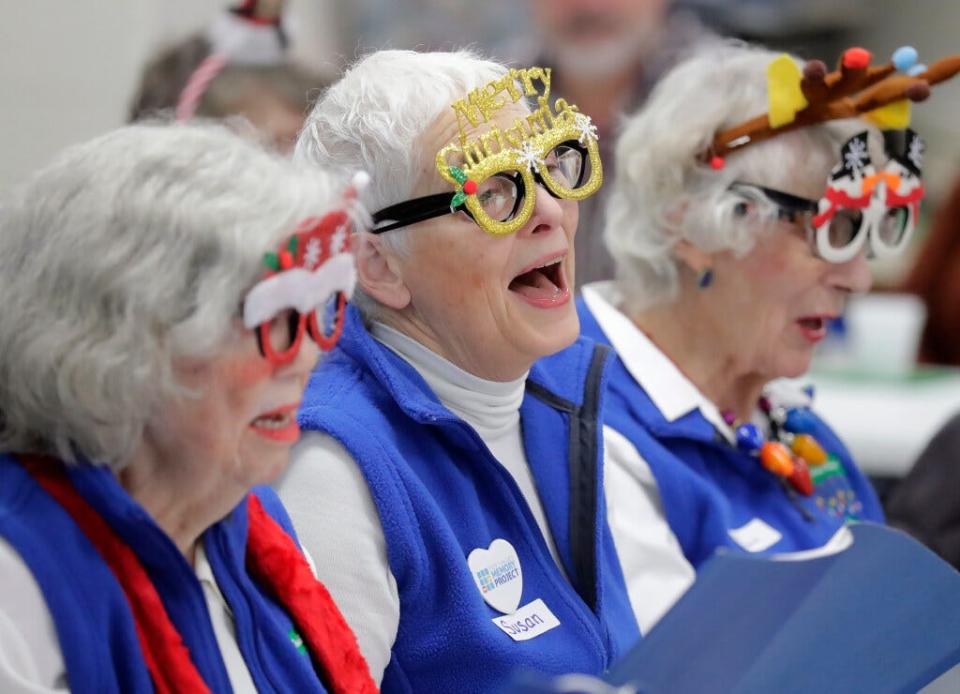
By design, memory cafes look different from one to the next: Some take place in libraries; others in coffee shops, nature centers or community centers. They are often facilitated through nonprofits, local health departments, Aging and Disability Resource Centers, and other groups.
What's key is that a memory cafe is free for participants, relatively low-cost to operate, and doesn't require a diagnosis at the door. It is not a drop-off for people with dementia, but a space for them and their caregivers to spend time together in a social setting, according to a Wisconsin Alzheimer’s Institute best practice guide.
McFadden wrote that guide. She’s now working with colleagues Anne Basting and Beth Soltzberg on a yearlong planning grant from Maude’s Ventures to expand memory cafes across the U.S.
The goal: Thousands of them.
“I see it as, we’re planting seeds in communities that we hope will then nurture a wider sense of dementia inclusion, and what we call “dementia friendliness,’” she said.
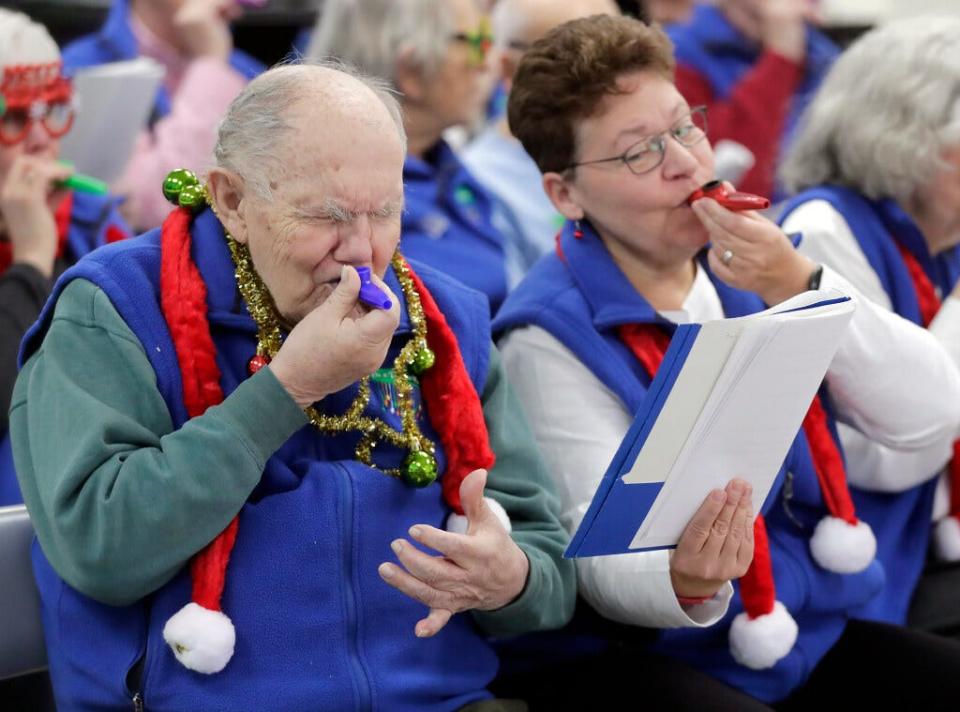
Memory cafes often rely heavily on volunteer support. Key to expanding their footprint is finding ways to pay facilitators for their work, McFadden said. One way is by integrating memory cafes into job descriptions, like for an adult education specialist at a library or museum.
McFadden also wants to make sure that, as dementia-friendly spaces expand, they reach people across cultural and linguistic identities; urban, rural and suburban areas. Some memory cafes in Wisconsin are held primarily in Spanish, for example.
Wisconsin expands 'dementia care specialist' program
Traci Edmondson, the dementia care specialist for Calumet and Outagamie counties, helped facilitate a FVMP memory cafe in mid-December. About 40 people gathered for a holiday concert put on by the dementia-inclusive On a Positive Note Chorus, followed by cookies and a presentation about the origins of Christmas.
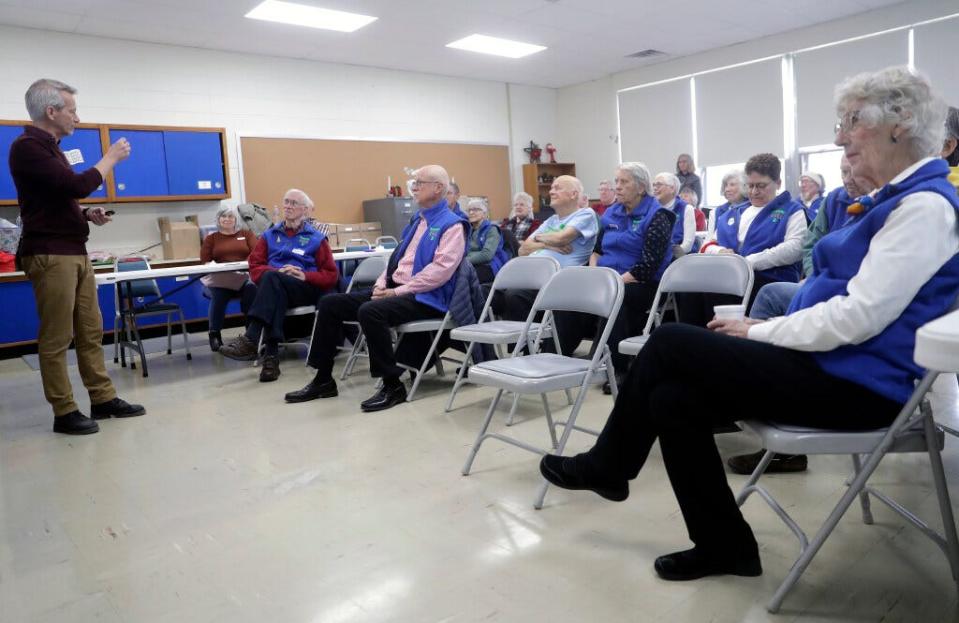
Helping facilitate the memory cafe is part of Edmondson's job description: to serve as a “catalyst” for programs that make public spaces more dementia-friendly. The state and federally funded dementia care specialist program has gradually expanded since 2013. Now it funds 58 specialists who cover Wisconsin’s 72 counties and 11 federally recognized tribal nations.
Edmondson said there are three main hurdles to expanding memory cafes and similar social opportunities: one, the availability of the programs themselves, and two, awareness about programs already in existence.
Having cared for her husband with dementia, Edmondson also said it’s important to make those events as easy to attend as possible. Caregivers are challenged enough without having to worry about barriers like transportation, scheduling, or finding someone to accompany their loved one to an event if they can’t, or just need a break.
"It’s a place that’s safe, that is without stigma,” she said. “We just want to bring joy, and fun. And I think that’s the bottom line.”
A bigger goal: Making public spaces more accessible for people with dementia
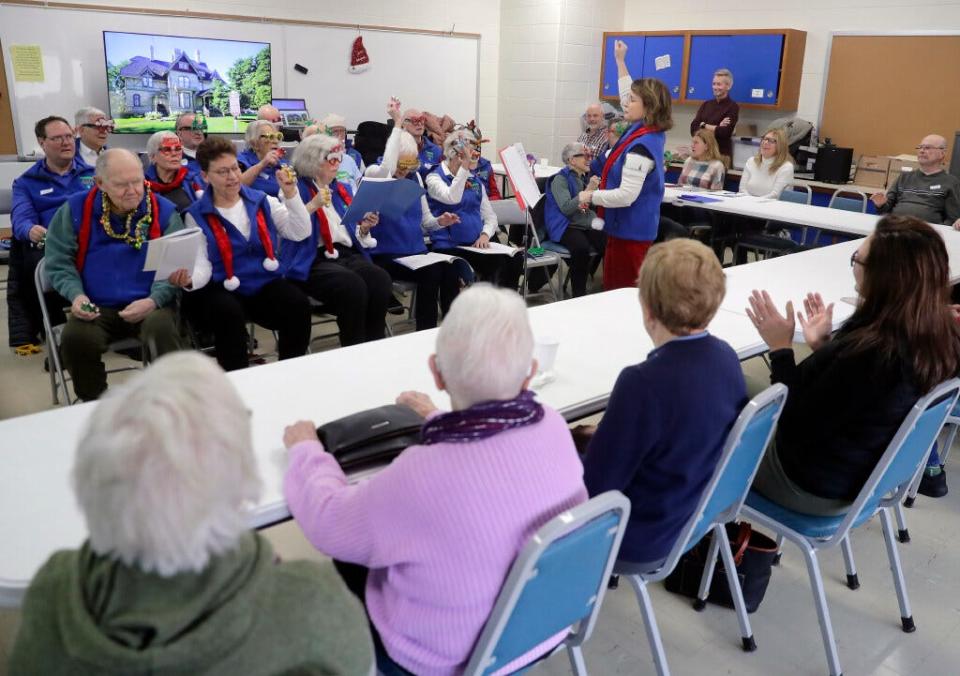
The public health department in Greendale is among the organizations in southeastern Wisconsin that facilitate memory cafes. But it has also helped set up events for caregivers, free memory screenings, a program connecting K-12 students with older adults to create music playlists, public educational sessions about memory loss and other efforts.
Greendale is among a handful of Wisconsin communities listed as dementia and age friendly through Dementia Friendly America and the AARP. The work began around 2014 when public health department staff noticed a large number of referrals from first responders related to people with dementia, said Shawne Johnson, a former health department staff member, nurse and volunteer on the Successful Aging in Greendale for Everyone group.
Smoking prevention, wearing bike helmets, regularly exercising — all of those are public health messages the public has come to recognize. Less well-known is research showing dementia is tied to a dozen preventable risk factors like smoking, obesity and hearing loss, department staff said in an interview.
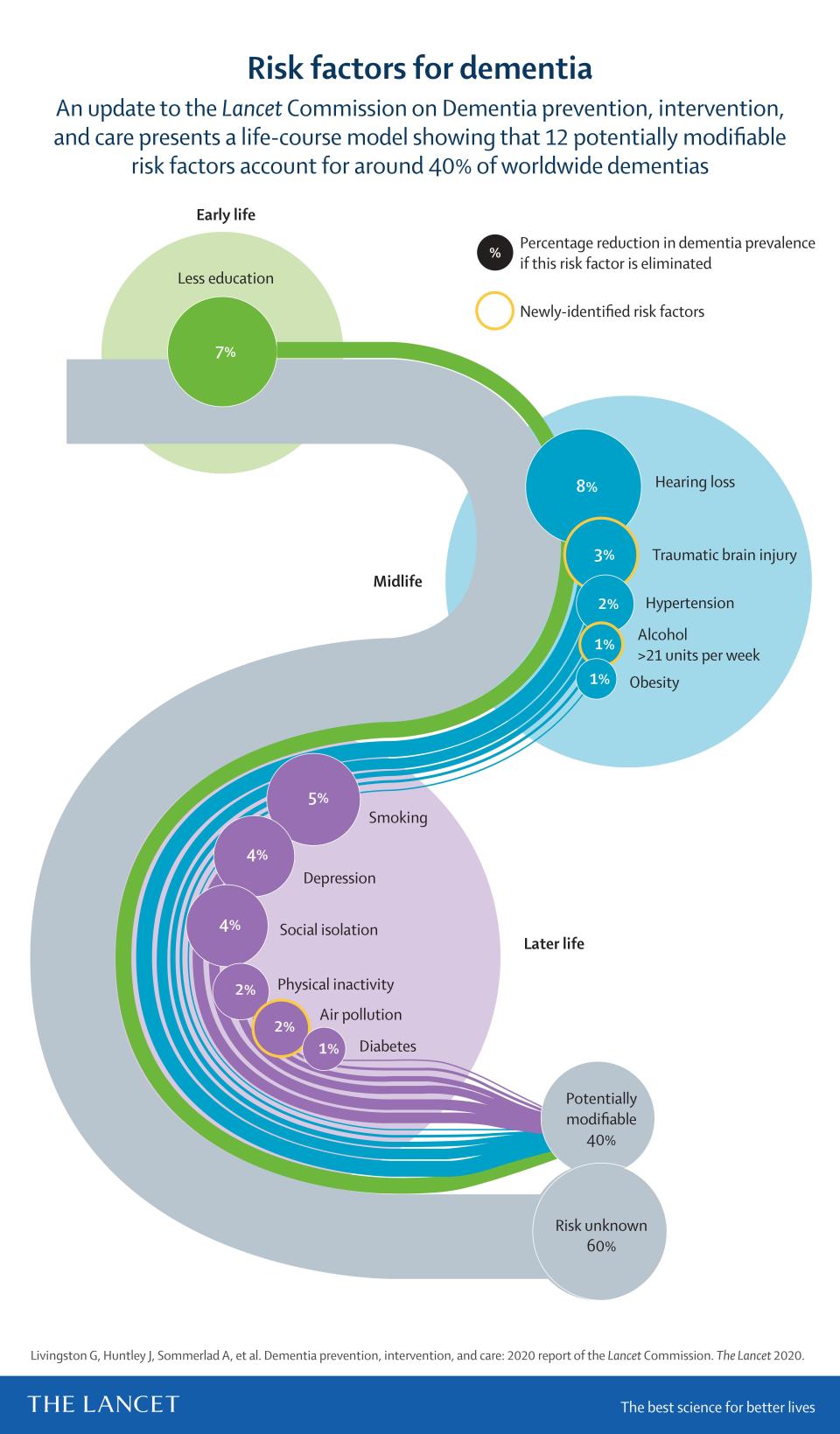
“That’s one of the messages that the health department is trying to get out. Because some people think, ‘Hey, it’s inevitable, it runs in my family,’” Johnson said.
Among those risk factors is social isolation, which is associated with a 50% increased risk of dementia. Yet nearly one in four U.S. adults 65 and older are considered socially isolated.
Research points to inequities in the disease. For example, the Centers for Disease Control and Prevention reports that immigrant and LGBTQ people are more vulnerable to social isolation. Black and Latino Americans are up to twice as likely as whites to develop dementia.
Wisconsin is in the midst of making a 2024-28 state dementia plan. The current plan includes goals of expanding dementia friendly communities, such as through dementia training for businesses and first responders, and investing in the state's existing dementia care specialist program.
In Judy Long’s experience, those actions can make a big difference.
She referenced her husband Tom’s experience going to the gym, where he struggled with tasks like using the locker or swimming in the middle lane of a pool. While the gym was not "dementia friendly," she pointed out it was also not intentionally made that way.
Many people don’t know about the minor actions that can make public spaces more user friendly for people with dementia, she said. That’s why education is key for people like her husband.
“I very much respect people who are making things happen, and helping people understand what they could do,” Tom said.
Editor’s note: Gannett, which owns the Milwaukee Journal Sentinel, donated $35,000 to the Fox Valley Memory Project in 2022 through the Gannett Foundation as part of its A Community Thrives program.
Cleo Krejci covers higher education, vocational training and retraining as a Report For America corps member based at the Milwaukee Journal Sentinel. Contact her at CKrejci@gannett.com. Follow her on Twitter @_CleoKrejci. This article was written with the support of a journalism fellowship from The Gerontological Society of America, The Journalists Network on Generations and The Commonwealth Fund.
This article originally appeared on Milwaukee Journal Sentinel: Wisconsin is the state with most memory cafes for people with dementia

